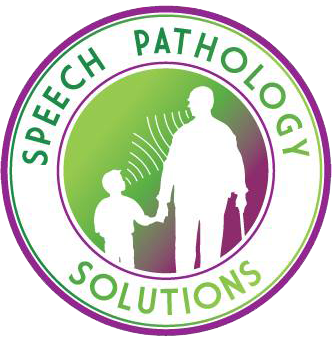Primary Progressive Aphasia (PPA) is a neurological condition that increasingly impairs language abilities, affecting many aspects of communication. It stems from degeneration in the brain’s frontal and temporal lobes, leading to a decline in the ability to speak, understand, read, and write. Unlike Alzheimer’s disease, which primarily affects memory, PPA initially spares most cognitive functions, making its early identification challenging yet crucial for effective management.
The progression of PPA varies among individuals, with symptoms often starting subtly before becoming more pronounced. The disorder typically manifests in adults in their mid-50s to early 60s, though cases have been reported in younger and older individuals. As a language-centered disorder, PPA’s impact on personal and professional life can be profound, affecting social interactions, occupational performance, and overall quality of life.
Symptoms of Primary Progressive Aphasia
The symptoms of PPA are diverse and evolve, often beginning with subtle language difficulties before progressing to more severe communication challenges. Some of the key symptoms include:
Word-Finding Difficulties: Individuals often struggle to find the right words, leading to pauses and substitutions in conversation.
Speech Production Issues: Speech may become slow, effortful, or less fluent. Some may develop a stutter or repeat phrases.
Impaired Comprehension: Challenges in understanding complex sentences and following conversations, particularly as the disease progresses.
Reading and Writing Difficulties: Problems with reading comprehension and written expression, including spelling and grammar errors.
As PPA progresses, individuals may also experience behavioral changes and, in later stages, some cognitive decline, although these symptoms are not as prominent as in other types of dementia.
Diagnosing Primary Progressive Aphasia
Early and accurate diagnosis is crucial for effective management of PPA. It allows individuals to start therapy sooner, potentially slowing the progression of symptoms. The diagnostic process for PPA is comprehensive, involving multiple steps to ensure precision and to differentiate it from similar conditions.
Clinical Assessment: This initial step involves a detailed evaluation of language abilities. Speech-language pathologists conduct extensive tests to assess speaking, comprehension, reading, and writing skills. This assessment helps in identifying specific language deficits characteristic of PPA.
Medical History Review: A thorough review of the patient’s medical history is crucial. This includes examining the progression of symptoms and ruling out other neurological conditions. Factors like the age of onset, the pattern of symptom progression, and family history of neurological diseases are considered.
Neuroimaging Tests: Imaging tests such as Magnetic Resonance Imaging (MRI) or Computed Tomography (CT) scans are vital. These tests can reveal patterns of brain atrophy typical of PPA, particularly in the frontal and temporal lobes. They help distinguish PPA from other types of dementia that might affect different brain regions.
Neuropsychological Testing: These tests evaluate cognitive functions beyond language. They assess memory, executive functioning, visuospatial skills, and more. This helps in differentiating PPA from other types of dementia like Alzheimer’s disease, where memory loss is more pronounced.

Therapeutic Approaches for PPA
Effective management of Primary Progressive Aphasia requires a multidisciplinary approach that addresses both communication and cognitive aspects of the condition.
Speech and Language Therapy: This therapy is crucial in PPA management. It includes tailored exercises focused on maintaining existing language abilities. As verbal abilities may decline, speech therapists also introduce compensatory strategies for communication. These can range from alternative communication methods like sign language or using picture boards, allowing individuals to express themselves in different ways.
Cognitive Rehabilitation: PPA can indirectly affect cognitive functions like memory, problem-solving, and attention. Cognitive rehabilitation includes techniques and activities that support these areas. Memory support exercises help recall and retain information, while problem-solving skills training enhances cognitive flexibility. Attention training exercises aim to improve the ability to focus, which is crucial for effective communication.
Technology-aided Therapy: The use of technology in therapy brings a modern approach to PPA management. This includes apps and devices designed for communication support, making it easier for individuals to express their thoughts and needs.
Family Education and Support: Involving family members in the therapy process is essential. Educating them about PPA helps them understand the condition and how to communicate effectively. Training in effective communication techniques equips them to better interact with their loved ones. Providing emotional and practical support advice helps families navigate the challenges of living with someone affected by PPA.
Technological Advancements in PPA Therapy
The integration of technology into the therapy for Primary Progressive Aphasia has significantly enhanced treatment approaches and outcomes.
Teletherapy: This advancement has increased access to therapy by enabling remote sessions, making treatment more accessible, especially for those who find it challenging to attend in-person sessions due to mobility issues or geographical constraints.
Assistive Communication Devices: These devices encompass a range of tools and apps specifically designed to aid in communication for individuals with PPA. Assistive communication devices provide alternative methods of expression, making everyday interactions more manageable and effective.
Cognitive Training Software: These programs focus on targeting specific cognitive skills that are often affected by PPA. This software is tailored to individual needs, offering exercises that help in improving and maintaining cognitive functions such as memory, attention, and problem-solving skills.
Living with Primary Progressive Aphasia
Adapting to life with Primary Progressive Aphasia (PPA) involves several key strategies and adjustments to manage the challenges effectively.
Communication Strategies: Individuals with PPA often learn new ways to communicate as their condition progresses. This can include using gestures, writing, or even employing technological aids to express themselves effectively.
Lifestyle Adjustments: Modifying daily routines to accommodate communication challenges helps to reduce stress and improve quality of life. This might involve simplifying tasks or creating structured environments that are more conducive to communication.
Support Systems: Having support from healthcare professionals, such as speech-language pathologists, guides in managing the condition. Family support is crucial for emotional and practical assistance, and participating in support groups can offer a sense of community and shared experience.

Transformative Support for PPA at Speech Pathology Solutions
If you or a loved one is navigating the challenges of Primary Progressive Aphasia, you’re not alone. At Speech Pathology Solutions, LLC, we understand the complexities of PPA and are here to offer support and expert guidance. Our team of dedicated speech-language pathologists specializes in providing personalized therapy plans tailored to your unique needs. With our comprehensive approach, innovative technology, and compassionate care, we are committed to helping you maintain your communication abilities and improve your quality of life. Contact us today to schedule a consultation and discover how we can support you on your journey with PPA. Your voice matters, and we’re here to help you find the best ways to express it.
Primary Progressive Aphasia FAQs
What is primary progressive aphasia?
Primary progressive aphasia is a neurological syndrome that involves a gradual impairment in language abilities, including speaking, understanding, reading, and writing.
How is PPA different from other types of dementia?
Unlike other dementias that primarily affect memory, PPA mainly impacts language skills.
What are the early symptoms of PPA?
Early symptoms often include difficulty finding the right words and subtle changes in speech fluency and comprehension.
What types of therapy are effective for PPA?
Language therapy, cognitive training, and alternative communication strategies are beneficial for PPA.
Can technology help in PPA therapy?
Yes, technological advancements like teletherapy have enhanced the accessibility and effectiveness of PPA therapy.

